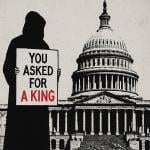What’s your passion, this Passion Week? Anything worth risking your life?
I attended a conference at Esalen Institute at Big Sur this past week, which gathered filmmakers and activists to share media strategies for promoting reconciliation among the religions of Abraham: Judaism, Christianity, and Islam. At one point the conversation focused on how to prevent war between Iran and Israel and America. People professed strong feelings about the brewing crisis.
“Are you willing to die to prevent this war?” asked one of the participants. The room fell quiet.
The man who asked the question was Abdullah Omeish, a filmmaker born in Libya but raised mostly in the US. He had gone to his homeland to document the revolution against the dictator, Gaddafi. He had left his wife and young kids in America to risk his life to record the story of the Arab Spring in his homeland, and had returned with videos of the uprising, which he showed us.
For Abdullah, this was no empty question. Nor was it for Jesus.
Jesus was passionate about creating a reign of divine love on earth, to replace the oppressive Roman empire in his occupied homeland. He was compassionate with the poor, the sick, the women treated like mere possessions, the Samaritan outcasts, the people seen as “unclean”. Passion Week is a time to remember Jesus’ intense commitment to love, peace, healing, and economic and social justice. His passion led to his death. But it transcended the cross on which the Romans killed him. His passion throbs in us now, inspiring us to spend our lives, and sometimes even to put ourselves at mortal risk, in the service of the most vulnerable among us.
Abdullah’s question has no easy answer. But it is one that further emboldens us to witness and work for the kingdom of compassion we want to create in this world. Now’s the time for active citizenship for the peaceful prevention of nuclear proliferation in the Middle East. Now is the time for protest against the Congressional budget plan that would cripple America’s social safety net. It includes a massive 17% cut in the Food Stamp system. Fact: the entire charitable, donated food system of America – through churches, temples, soup kitchens, Food Banks, etc – distributes a dollar value of food that is only 6% of all federal government food aid for the poor. (Source: Bread for the World, a major evangelical Christian charity, quoted in FIXING THE MORAL DEFICIT by Ronald J. Sider, 2012, p 89.) The amount of the proposed reduction in Food Stamps would be roughly double the amount of food that is provided by charity in America! Churches can’t collect canned goods fast enough to make up the shortfall. But they can mobilize faithful voters to reject this shameful budget proposal. And they can pray in worship – not to cut taxes on the rich, but to bless the taxes we pay and ask God for inspiration to press for the money to be spent compassionately. (Celebrate the Blessing of Taxes in worship on Sunday, April 15)
As we contemplate the cross on Friday and the empty tomb on Sunday, may the passion of the Christ be resurrected within us – for the sake of the common good!
















